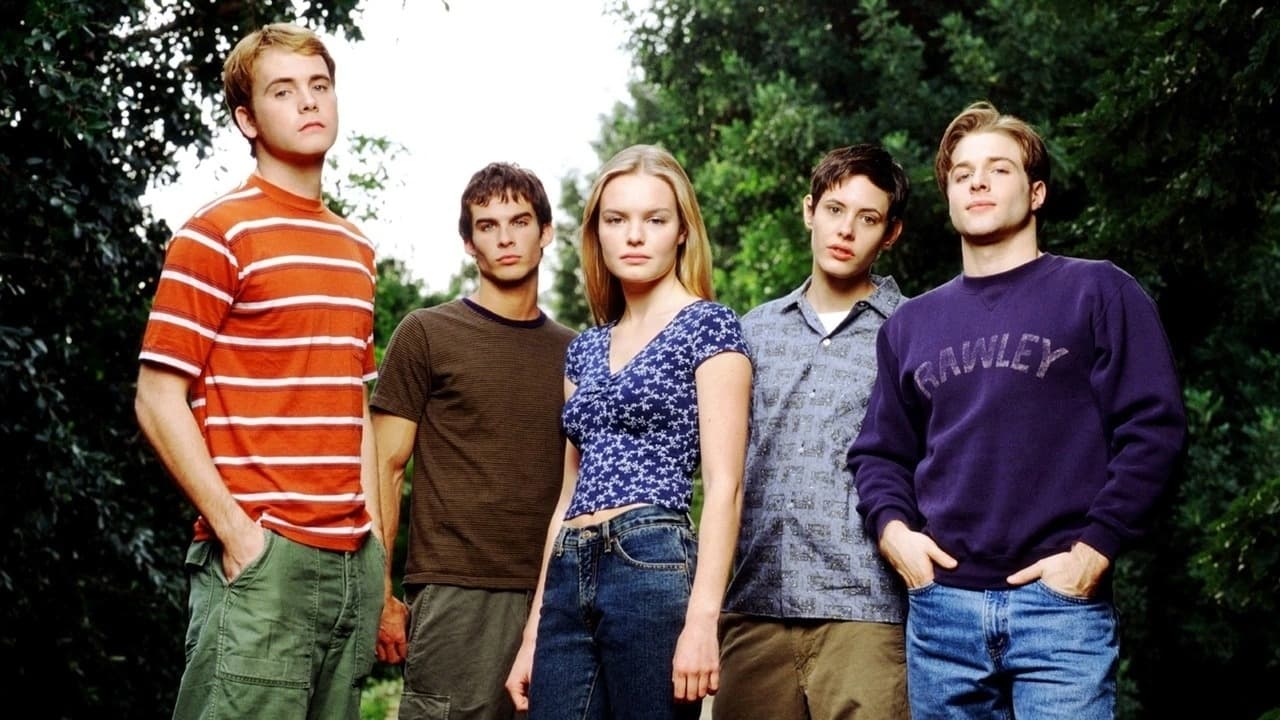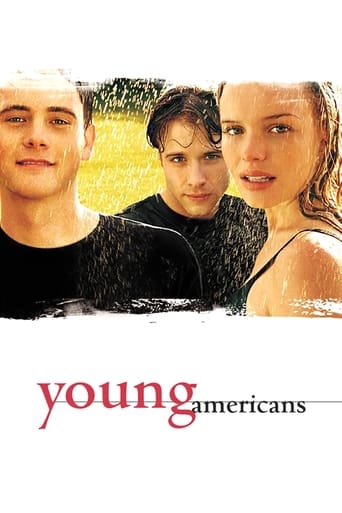Ichabod Grubb
Astonishingly, "Young Americans" (hereafter "YA"), a failed summer teen TV series, rewards critical attention by yielding up an artfully masked burden for adults on such themes as the relationships between passion and compassion, between youth and maturity, between descriptive and normative truth, between what we want and what we need, and between realism and idealism in art.Like many traditional "children's stories," YA has both a naive meaning for children – in this case, teenagers -- and a distinct albeit complementary meaning for grown-ups. However, YA is structured so that its "grown-up" meaning is impossible to understand fully on first viewing; the key that unlocks that meaning, while hinted at from the first scenes of its first episode, it is not clearly revealed until the end of its last episode. This has its reason: appreciation of YA's grown-up meaning is greatly enhanced by having first appreciated only its meaning for children, just as an adult's appreciation of fairy tales is enhanced by having first heard them as a child.So, until you have watched YA at least once, do not read this review past this paragraph. Instead, go watch YA. Regrettably, no "authorized" recording of YA has ever been released, either in tape or in DVD form; all versions of YA now online or on DVD originate from viewer recordings. However, all eight episodes, in the original English-language version, are now accessible online at YouTube, either in whole-episode clips on the channel of "Alienious" or in shorter clips on the channel of "Granadaville." Neither of those channels comments on YA's meaning for grown-ups. Avoid, until subsequent viewings, my "IckyGrub" channel on YouTube, where the whole series is made available with better visual quality and in a more complete form, but where both the video clips and the commentaries on them are intended to facilitate "grown-up" understanding of "Young Americans."The key that unlocks YA's grown-up meaning is an understanding of its narrator's perspective. Will Krudski, the narrator, is a grown-up reliving his youth in the present (2000). Krudski, in YA, is both character and narrator, both young and old at once, and consequently, YA's time-setting is ambiguous; it seems set both in the summer of 2000, its ostensible setting, and at some earlier time no later than 1973, when YA's creator, Steve Antin, was fifteen years old, the age of YA's protagonists.This temporal ambiguity is disturbingly evident from the very start of YA. Why is a drama ostensibly set in New England in the year 2000 set at two institutions, a gender-segregated prep school and a full-service gas station, that largely vanished from New England in the 1970s? Why is that gas station full of equipment and vehicles dating from the middle of the 20th century? Why does the ubiquitous Coca-Cola (YA's sponsor) come in glass bottles rare in the USA for decades before 2000, and why is it dispensed from a 1930s-model Coke refrigerator? How can a drama ostensibly narrated in the present include events of which the narrator has no contemporary awareness? These questions are answered only by a seemingly casual shift in the tense of Krudski's narration, at the end of YA's last episode, from present to past: "I knew I'd never forget … that summer." As Antin said in a press interview in July 2000, YA is both "about young people at that time of life when the possibilities seem endless ... and about the moments of life when you look back on your youth." However, Krudski is not reliving his youth as he first lived it; rather, he is reliving it as youth should be, in the hope of recovering youth's passion for "exceeding expectations," of overcoming the complacency of maturity. Rawley Academy, YA's main setting, is Kruski's dream of an ideal youth, "the perfect people, the perfect life … something that wasn't meant for me." Although the protagonists generally seem too good to be true, Rawley's motto redefines "truth" as "virtue" rather than descriptive accuracy, underscoring YA's commitment to idealism rather than realism.The core of the moral rejuvenation that Krudski seeks, and that YA seeks to inspire in viewers, is ability to love more "truly." The nature of "true love" is the central theme of YA, which develops it by retelling in young ways what Antin called "classic stories" of true love, by rejuvenating myths of true love, which, in turn, rejuvenate us morally. YA's "true love" story-line, in which an emotionally desperate cross-dressing straight girl, 'Jake' Pratt, finds an emotional savior, Hamilton Fleming, the son of Rawley's dean, retells in a young way two such myths: "Orpheus and Eurydice" and "The Frog Prince." In Antin's version of "The Frog Prince," cross-dressing replaces a magical enchantment as the "test of true love" that renders the beloved physically repugnant. Antin's Orpheus, Fleming, personifies compassion rather than passion, exemplifying first compassion's ability to give birth to passion, and then its need to mask itself as passion in order to be effective. Against the bulk of Western tradition since St. Paul, e.g., against Andres Nygren, Denis de Rougement, and Dostoyevsky in "The Idiot," but with Martin D'Arcy, Antin suggests that passion and compassion are complements, and that we might love more truly if we understood this. Interestingly, the current Pope, in his 2005 encyclical, "Deus Caritas Est," takes the same side as Antin in this ancient debate.Rawley being a bit of heaven on earth, Providence works more clearly and quickly in YA than in our world; evil reliably brings forth good, and the protagonists invariably get what they need, whether it be what they want or not. But perhaps if we loved more truly, Providence might operate more clearly and quickly in our world, too.The great mystery of YA is why Steve Antin labored so artfully to infuse so much grown-up meaning into a teen TV series, of which few viewers were likely even to perceive it. Perhaps one day he'll tell us.

